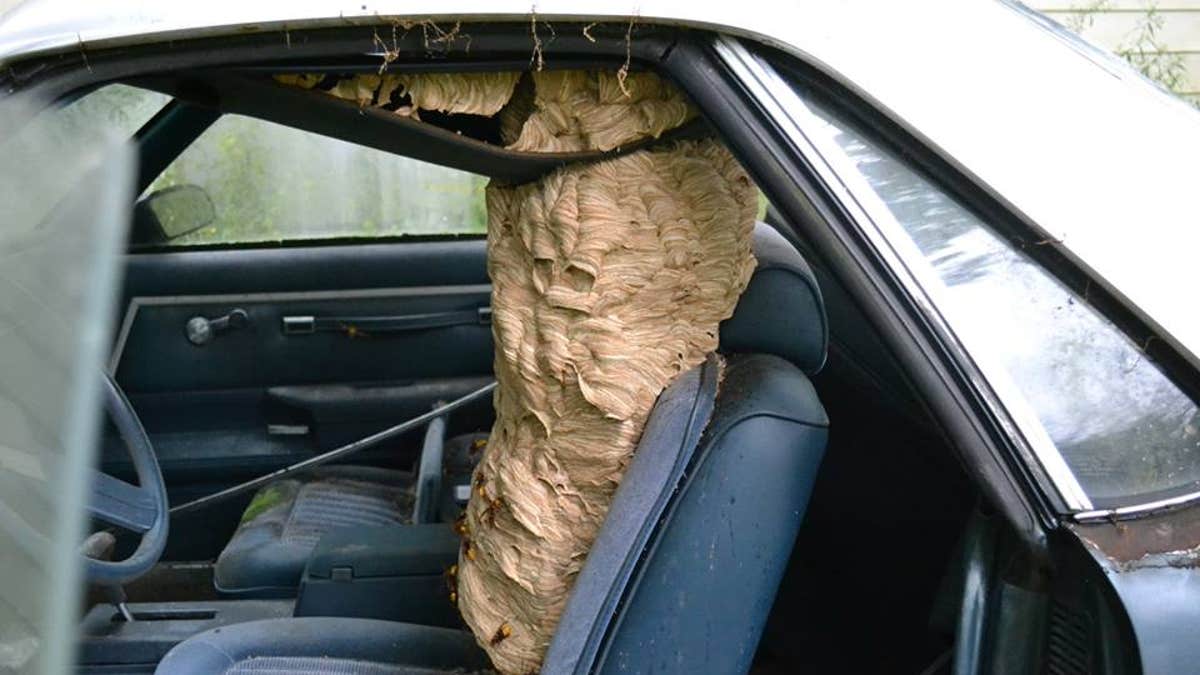
Watson said that had he not removed the nest, it would have gotten bigger. (Travis Watson)
Ohio’s so-called “Bee Man” showed more courage than many while removing a massive European hornets’ nest from a car on Sunday.
Travis Watson, owner of an Ohio-based bee-removal service, moved the massive nest from the driver’s seat of a rusty Chevrolet El Camino in Alliance, a video of the event shows.
Watson told Fox News on Tuesday he estimated 800 to 1,000 European hornets were living inside the nest — marking the first time he’d ever seen one of that size.
BED BUG OUTBREAK HITS BRITISH CITIES
"It got my adrenaline going,” Watson, a 13-year veteran of the removal service and lawyer by trade, said. The 28-year-old said he works in the removal industry for roughly three-quarters of the year.
“You don't come across a group of European hornets when you’re drafting a will,” he joked.
In the video, Watson can be seen pumping pesticide into the nest. He then breaks off chunks of the hornets’ former home while plucking the disoriented creatures off of his arms and hands.
Despite wearing protective clothing, "if you give them enough time, they will find a way to sting you," he said, noting these hornets can deliver multiple stings. According to the University of Kentucky Department of Entomology, European hornets, which can reach one and a half inches in length, “will only sting when threatened” and will “work together to defend their nest against anyone who comes too close.”
Watson said the nest weighed roughly four pounds, and he used pesticide because European hornets are an invasive species that can kill off honey bees.
"It got my adrenaline going."
BLOOD-SUCKING 'KISSING BUGS' SPREADING DANGEROUS PARASITIC DISEASE IN US, HEALTH OFFICIALS WARN
These insects were first located in the U.S. in 1840, when they were found in New York. Since then, they have made a home in states as far as Florida to the Dakotas, according to Penn State’s Department of Entomology. Most European hornets die in the winter, but the “overwintering” females that survive re-emerge in the spring to create a new colony.
As for Watson, "it was one of the coolest jobs [he'd] ever done," he said of removing the hornets.
